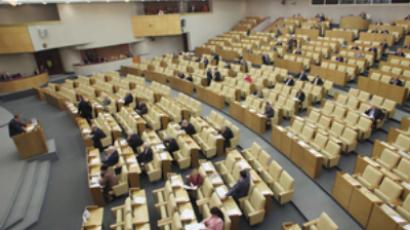Britain to crack down on file sharing
File sharers beware! The British government's proposing a radical new way to punish those who freely swap music and films over the web: cutting off their internet access.
It's a startling turnaround from just two months ago, when the government’s own Digital Britain report ruled out the measure as going too far. Jim Killock of the Open Rights Group feels the new proposals are draconian, because media companies themselves have at last started responding to the threat.
“Actually, piracy is reducing online and the reason for this is that the content industries have finally got the services in place so people can choose legal alternatives which are better than peer-to-peer file sharing,” he told RT.
“Now they are available, piracy is reducing and online revenues are going up. So at the moment the market is solving the problems, suddenly, the government wants to get all heavy handed”.
The move comes hot on the heels of a meeting between the business secretary Lord Mandelson and Hollywood mogul David Geffen, during a recent holiday in Corfu.
That’s intensified speculation the pair reached a secret deal to protect the film and music industries, an allegation denied by the Department of Business, Innovation and Skills. As the saying goes, “if you can't beat them, join them”, and that's exactly what the Pirate Bay file sharing website has done by launching a political party in the UK, in the hope of changing things from within.
“Our copyright laws were written over a hundred years ago,” Andrew Robinson, the leader of the Pirate Party explained.
“So naturally they don't have anything useful to say about the current situation with computers and file sharing. They're all based around the idea that copyright works are always traded for profit. File sharing is a new kind of experience where people trade because they want to share our culture.”
Internet service providers are also on the offensive: they would be the ones forced to foot the bill for the technical aspects of these measures. They’ve also made it plain they don’t want to police the web on behalf of the media sector.
The introduction of this law would undoubtedly constitute a crackdown on illegal file sharing, and potentially act as a deterrent. But the wide range of opinions both in parliament and in the various industries involved mean a consensus will be very hard to reach.
Ironically, this suggests that illegal file sharing will continue unchecked in Britain for the time being – something the government, and Lord Mandelson, want to avoid.















